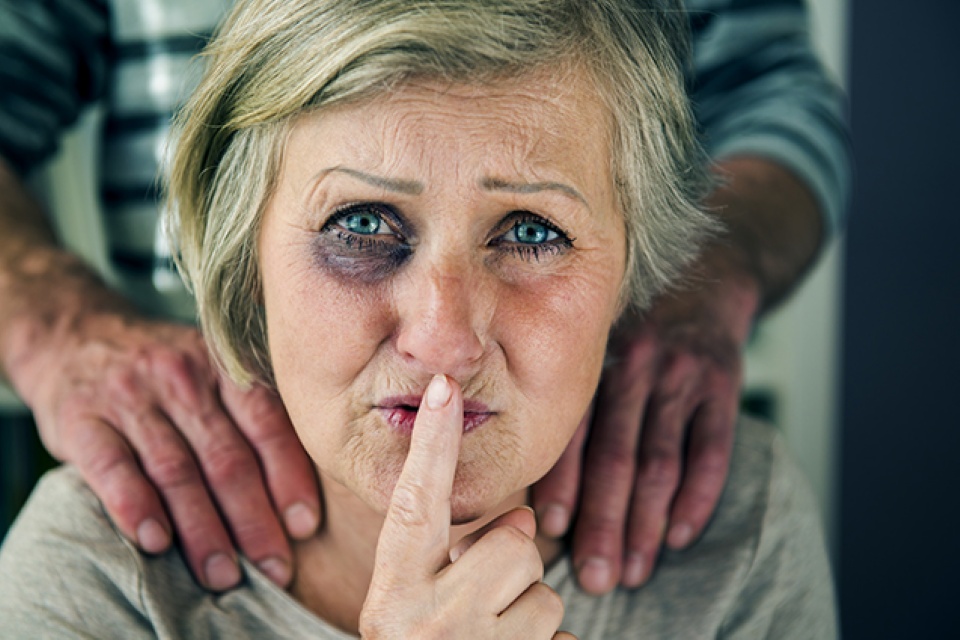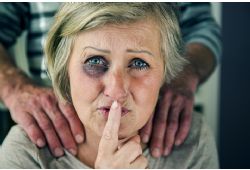According to
statistics, every year in Laval, around 2,640 to 4,620 older adults experience
abuse. This number, however, is only an approximation since a majority of studies
suggests that most cases of elder abuses are never reported.[2]
But before we ask the question why older adults do not denounce the abuse they
suffer, let’s have a look at what elder abuse is and the different ways it happens.
Elder Abuse; What Is It?
Elder
abuse was defined in 2002 by the World Health Organization as “a single, or
repeated act, or lack of appropriate action, occurring within any relationship
where there is an expectation of trust which causes harm or distress to an
older person.”
An important
element of this definition is the relation of trust that exists between the
abuser and the victim. Although abuse and neglect can take place in assisted
living facilities or in nursing homes, it most often happens within the family.
This explains in part the complexity of the various abusive situations that
might be encountered. The idea of the “bad” abuser and the “good” victim does
not account for the complex reality of elder abuse. The abuser can be
ill-intentioned, but he can also be an exhausted caregiver who does not have
the necessary support and means to provide all required care. Of course, every
situation needs its adequate response and solution. What is certain, however,
is that abuse will not stop on its own and will even increase with time.
Abuse of seniors occurs
in different ways and is commonly defined as;
- Physical abuse; Pushing, shaking, slapping, restraining, confining, under or over medicating.
- Sexual abuse; Sexual harassment, intercourse without consent, exhibitionism.
- Psychological abuse; Insulting, threatening, humiliating, ignoring, treating like a child, isolating from friends, family or activities.
- Financial abuse or fraud; Misusing or stealing a senior's assets, property or money, cashing an elderly person's cheques without authorization.
- Neglect; Withholding care or medical attention, not providing proper food, liquid, clothing or hygiene, leaving a person in an unsafe place.
- Violation of rights; Denying a person privacy/intimacy, restricting a person’s freedom, withholding information.
Elder abuse should not be overlooked. Its consequences are significant; isolation, fear, anxiety, loss of confidence, physical injuries, depression, deterioration of heath, and even early death
Seniors have the right to be respected and to live in a safe environment.
There are many reasons why abuse is kept secret. Seniors might feel/experience the following;
- Have difficulties with communication because of physical, cognitive or linguistic limitations.
- Fear more abuse or retaliation, fear of being abandoned, fear of being placed in residence, fear of being judged by others.
- Feel humiliated and ashamed.
- Not knowing they are experiencing abuse.
- Not knowing where they could find support.
Violence does not stop on its own
If you are a victim, you need help
It you witness abuse, offer your help
Resources in Laval
If you think you are victim of abuse or if you suspect a situation of abuse, talk to someone you trust (a member of the family, a friend, your social worker, your doctor, etc.). There is also a provincial bilingual and confidential helpline for elder abuse where you can get information or simply be listened to. Your social worker and the CISSS can help you and give you concrete support and solutions to improve your situation. We are also lucky in Laval to have DIRA-Laval, an organisation specialised in helping and accompanying seniors experiencing abuse. For any emergency situation, the police of Laval are well prepared to act quickly. Finally, there are many organisations in Laval who provide respite, information and support to caregivers as well as various groups to break isolation. [Some of these resources will be listed below].
Raising Awareness and Giving Access to Resources to Laval’s Cultural Communities
As we see, there are many resources in Laval ready to give information and support. The Regional portrait on elder abuse, however, notes that the Anglophone and Allophone communities in Laval know less about who can help and answer their questions. Seniors of allophone communities can also be isolated for linguistic reasons.
CLAVA offers interactive information sessions about elder abuse adapted to each community’s schedule and needs. These sessions are offered in French and English with the possibility of having an interpreter in another language if necessary. All the presentations are free and very flexible. The seniors and other persons present will be more vigilant and possibly participate in raising awareness of elder abuse in their community.
Information is a key element to fight elder abuse!
Resources;
To get information about our information sessions --- CLAVA (450) 663-9261
Emergency --- 911
Elder Abuse Helpline --- 1-888-489-ABUS (2287)
CISSS Accueil première ligne --- (450) 627-2530 ext. 64922
DIRA-LAVAL --- (450) 681-8813
Info-Aidant Helpline (To know the resources for caregivers) ---- 1-855-8LAPPUI (852-7784)

 In The Latest Issue:
In The Latest Issue:


 BY:
BY: 



Tweet
Share